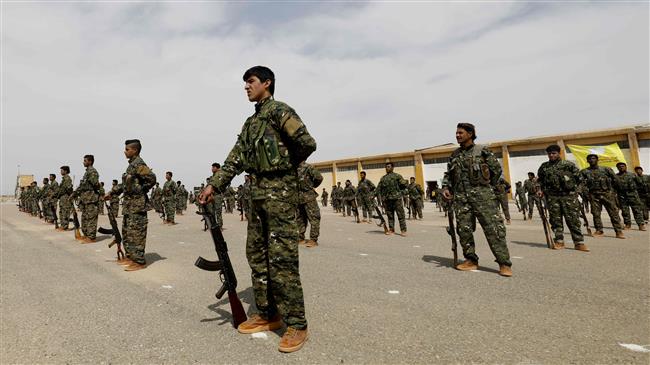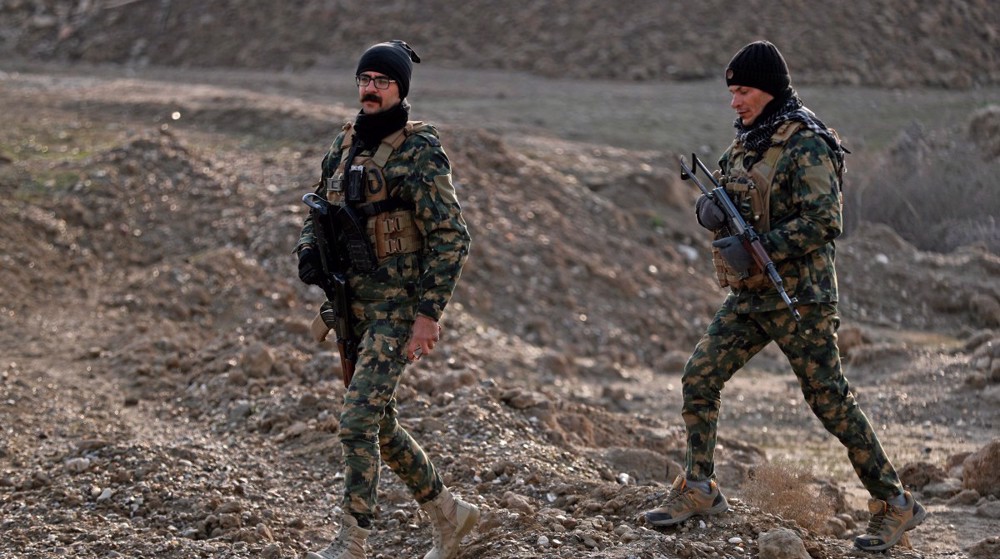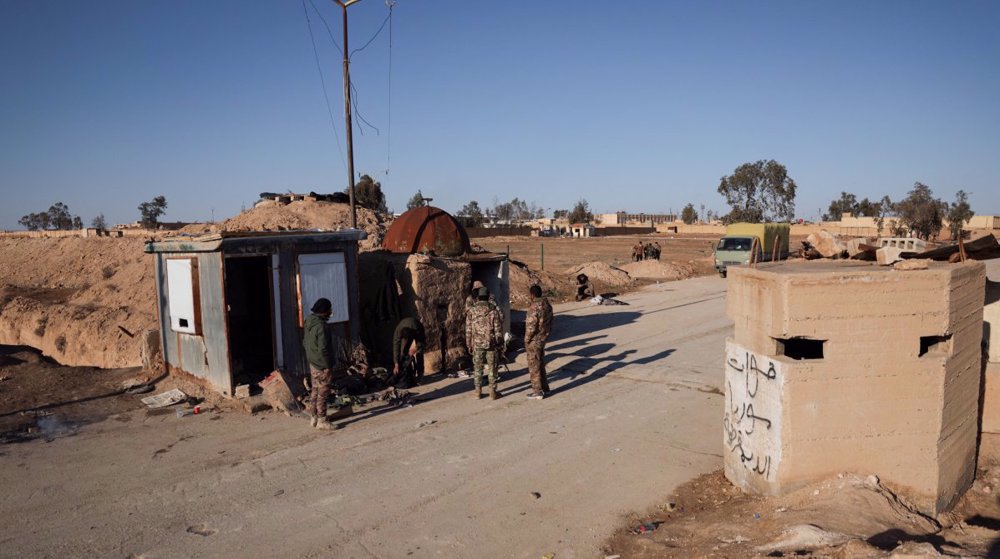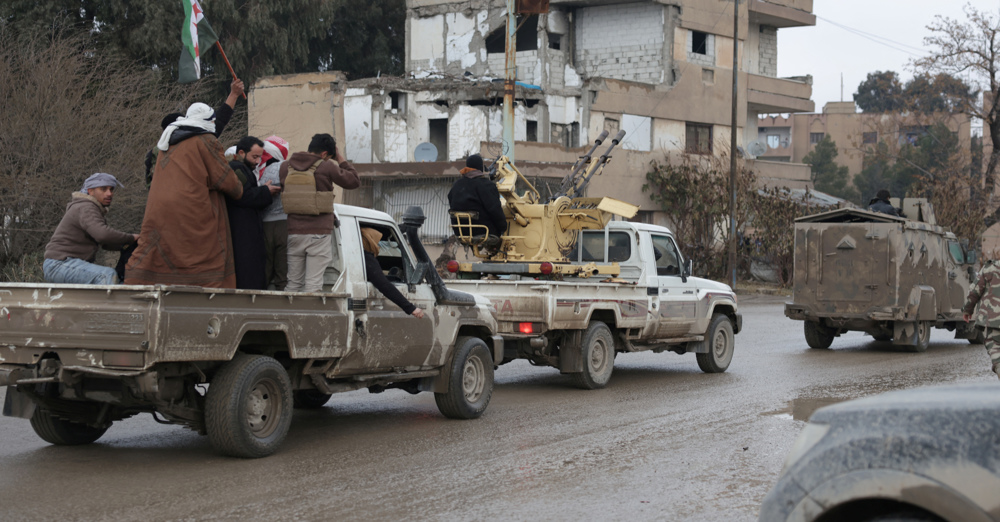US-backed militants ‘create platform’ for talks with Syrian government
The political arm of the so-called Syrian Democratic Forces (SDF), a US-backed coalition of mainly Kurdish militants holding a grip on northeastern Syria, says it is devising a negotiating team for potential talks with the central government in Damascus.
On Monday, the so-called Syrian Democratic Council (SDC), which is linked to the SDF umbrella militant group, held a gathering in the northern town of Tabqa for a two-day meeting, with local Kurdish officials and Syrian domestic opposition figures in attendance.
Leading SDC member Hekmat Habib told the AFP that one of the meeting’s aims was “to create a platform to negotiate” with the Syrian government.
“This platform will represent all areas in the autonomous administration and all areas held by the SDF,” he said, without providing further details.
The militants are allied with US and French troops deployed to Syria and control much of the country’s north and east.
In June, the SDC said it was ready for “unconditional” peace talks with the government.
The Kurdish militants in northern Syria have been a source of tensions between the US and Turkey. Ankara wants the US to stop supporting and arming the Kurds, but Washington rejects that call.
Last month, Turkey and the US reached a deal that envisages the withdrawal of Washington-backed Kurdish militants from Manbij, in an agreement that observers say could push the Kurds towards the Syrian government.
Syrian President Bashar al-Assad said in early June that his government has two options in dealing with the SDF issue: first, negotiations and second using force against the Washington-backed militants.
“The first one: we started now opening doors for negotiations, because the majority of them are Syrians, supposedly they like their country, they don't like to be puppets to any foreigners. If not, we’re going to resort... to liberating those areas by force,” he told Russia’s RT television network.
Several days later, a delegation from Syria’s domestic opposition made a rare visit to Qamishli, most of which is held by Kurdish forces linked to the SDF.
Syrian media reported that the Kurds had expressed readiness to hand over control of the Eastern Euphrates to the government after Washington withheld its support for the Kurdish militants in the northern Syrian cities of Manbij and Afrin.
The Syrian government has given a degree of authority to the Kurdish regions to run their own affairs in face of a foreign-backed militancy. The US, however, has used the vacuum to establish a foothold in those regions with the help of the militants.
The US angered Turkey by announcing a plan for the formation of a Kurdish militant force in Syria near the Turkish border, prompting Ankara in January to launch a cross-border military operation inside Syria with the declared aim of eliminating the Kurdish People’s Protection Units (YPG) militants, an SDF offshoot, particularly in the Afrin region.
Turkish troops captured Afrin in March, claiming that they had killed scores of YPG militants until then.
Earlier this year, Turkish President Recep Tayyip Erdogan had threatened to push its Afrin offensive against the YPG militants eastward to Manbij, where US forces are stationed, risking confrontation between the NATO allies.
However, Washington agreed to withdraw the US-backed Kurdish militia from Manbij. This clearly paved the way for Turkish troops to capture the volatile town in a move seen in line with the same US-Turkey deal which was sealed in June.
Ankara views the YPG as a terrorist organization linked to the homegrown Kurdistan Workers’ Party (PKK) militant group, which is seeking independence from Turkey through militancy for decades now.
Palestinians harassed, blocked at Rafah crossing amid limited Gaza reopening
Over 14,000 Iranian university professors condemn EU’s IRGC designation
VIDEO | People's uprising and their role in overthrowing the Shah's regime
VIDEO | Thousands rally in Caracas a month after US forces captured Maduro, his wife
VIDEO | Press TV's news headlines
VIDEO | Merowe Dam targeted as youth mobilize to protect Sudan’s Northern State
VIDEO | India faces scrutiny over minority worship attacks
VIDEO | UN special rapporteur says third states have enabled Israel’s crimes in Gaza












 This makes it easy to access the Press TV website
This makes it easy to access the Press TV website